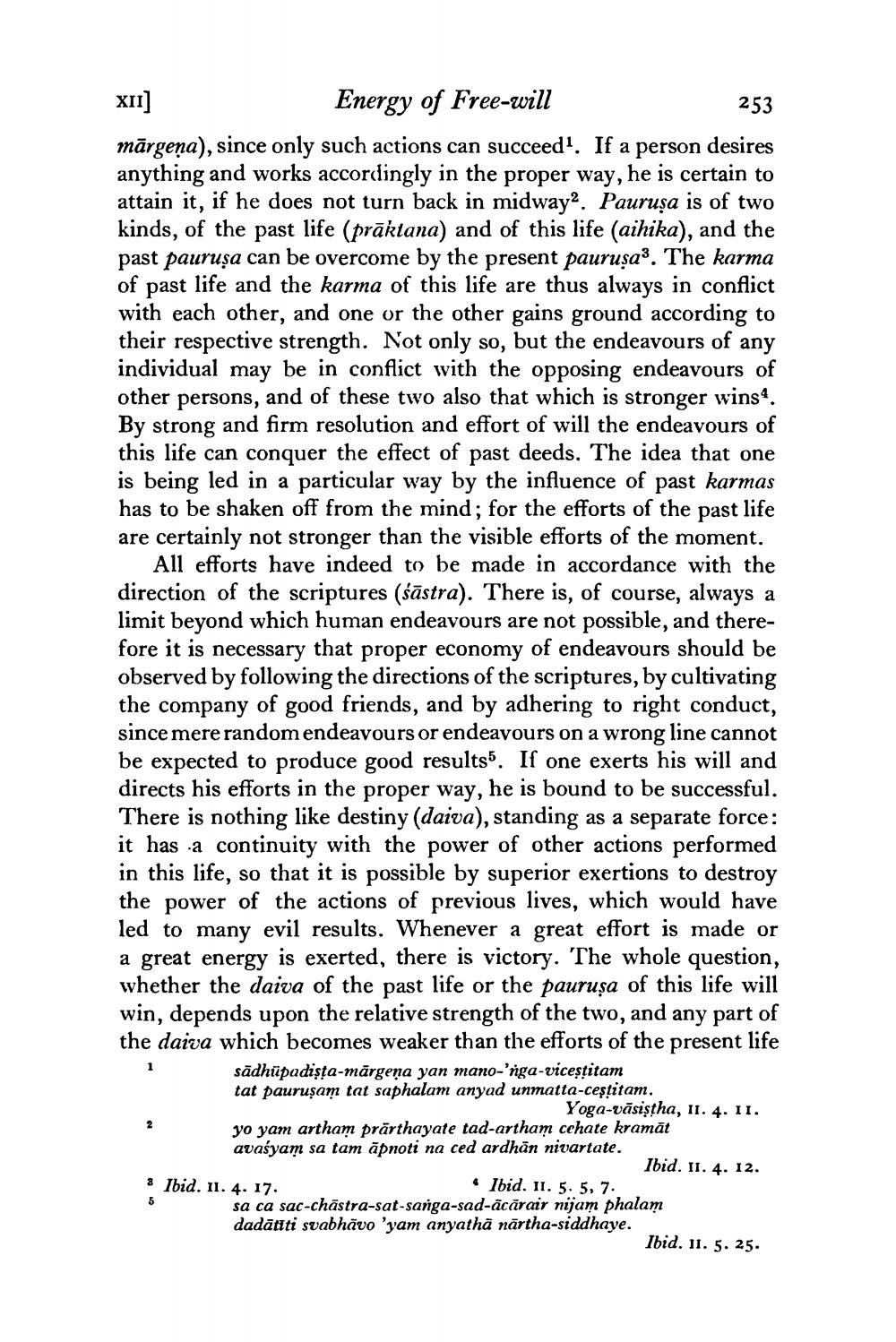________________
XII]
Energy of Free-will
253
mārgeṇa), since only such actions can succeed1. If a person desires anything and works accordingly in the proper way, he is certain to attain it, if he does not turn back in midway2. Pauruşa is of two kinds, of the past life (prāktana) and of this life (aihika), and the past pauruşa can be overcome by the present pauruşa3. The karma of past life and the karma of this life are thus always in conflict with each other, and one or the other gains ground according to their respective strength. Not only so, but the endeavours of any individual may be in conflict with the opposing endeavours of other persons, and of these two also that which is stronger wins4. By strong and firm resolution and effort of will the endeavours of this life can conquer the effect of past deeds. The idea that one is being led in a particular way by the influence of past karmas has to be shaken off from the mind; for the efforts of the past life are certainly not stronger than the visible efforts of the moment.
All efforts have indeed to be made in accordance with the direction of the scriptures (sastra). There is, of course, always a limit beyond which human endeavours are not possible, and therefore it is necessary that proper economy of endeavours should be observed by following the directions of the scriptures, by cultivating the company of good friends, and by adhering to right conduct, since mere random endeavours or endeavours on a wrong line cannot be expected to produce good results". If one exerts his will and directs his efforts in the proper way, he is bound to be successful. There is nothing like destiny (daiva), standing as a separate force: it has a continuity with the power of other actions performed in this life, so that it is possible by superior exertions to destroy the power of the actions of previous lives, which would have led to many evil results. Whenever a great effort is made or a great energy is exerted, there is victory. The whole question, whether the daiva of the past life or the pauruşa of this life will win, depends upon the relative strength of the two, and any part of the daiva which becomes weaker than the efforts of the present life sādhūpadiṣṭa-mărgeṇa yan mano-'nga-viceștitam
tat pauruşam tat saphalam anyad unmatta-ceştitam. Yoga-väsiṣṭha, II. 4. 11.
yo yam artham prarthayate tad-artham cehate kramāt avasyam sa tam apnoti na ced ardhan nivartate.
1
2
Ibid. II. 4. 12.
3 Ibid. 11. 4. 17.
5
4 Ibid. 11. 5. 5, 7. sa ca sac-chastra-sat-sanga-sad-ācārair nijam phalam dadātīti svabhāvo 'yam anyathā nārtha-siddhaye.
Ibid. 11. 5. 25.




